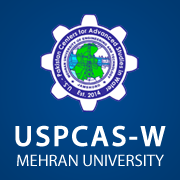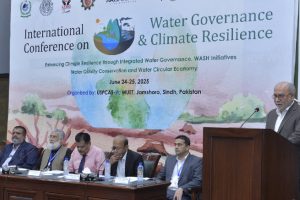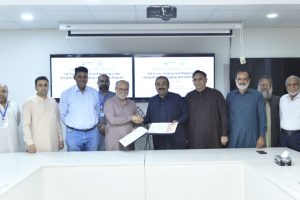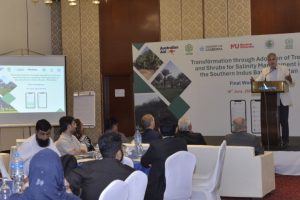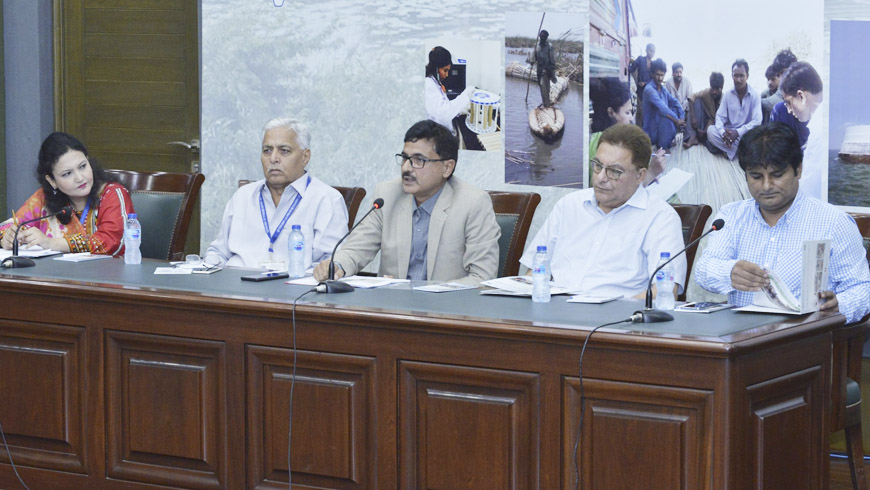
Seminar on “Keenjhar Lake Water Quality Assessment and Valuing Ecosystems Services (KL-Waves)”
U.S.-Pakistan Center for Advanced Studies in Water at Mehran University of Engineering & Technology Jamshoro held the Project Completion Seminar on “Keenjhar Lake Water Quality Assessment and Valuing Ecosystems Services (KL-Waves)” to investigate the water quality status of Keenjhar Lake estimate critical factors adversely affecting the ecosystem, presented by Uzma Imran Principal Investigator of the research study here on on Friday, 11th October 2019.
Prof. Dr. Bakhshal Khan Lashari Project Director at USPCASW, Shafqat Hussain Wadho Chief Engineer Kotri Barrage at Irrigation Department, Dr. Abdul Jabbar Memon Deputy Director at Fisheries Department, Altaf Shaikh Manager Conservation Sindh at WWF Pakistan, Prof. Dr. Rasool Bux Mahar Deputy Director at USPCASW also spoke in the seminar.
Dr. Bakhshal Khan Lashari Project Director USPCAS-W, welcomed the esteemed guests from Govt. & Non-Govt. organizations, industry, community representatives and other stakeholders. He also appreciated the research work conducted by Uzma Imran and her team. In his welcome address, Dr. Lashari highlighted the progress of water study center and gave credit to faculty and research scholars of this center in the completion of over 200 research projects in only three and half years. “We have reliable data available for environment and water policy development”, he added.
Uzma Imran presented the detailed research study on the water quality of Keenjhar Lake and components related to the ecosystems with the help of maps, pictures, graphs and charts. While highlighting the significance of Asia`s one of the biggest semi-natural lake she shared that 27.6 km long Keenjhar lake is the major source of water to Karachi and nearby communities and Thatta district, and specifically over 50,000 people living in the neighborhoods are directly dependent on the lake for their livelihood. “Keenjhar hosts migratory birds during winter and it is considered as one of the most visited tourism place in Sindh,” she added.
In the problem statement of the research study, she shared the sources damaging water quality that includes; KB Feeder canal transports, pollution discharged in river Indus by towns and cities upstream, Kotri industrial waste, Nooriabad industrial waste, discharge of untreated domestic and agricultural wastes from surrounding villages, tourists around 385,000/year and more than 15,000/week in peak season, contribute to lake pollution. That resulting into decline in fish population and migratory birds; forcing people to either opt for alternate livelihood sources or live in miserable conditions. Uzma Imran described to audience about the sampling methods of water and fish samples to investigate the major effects.
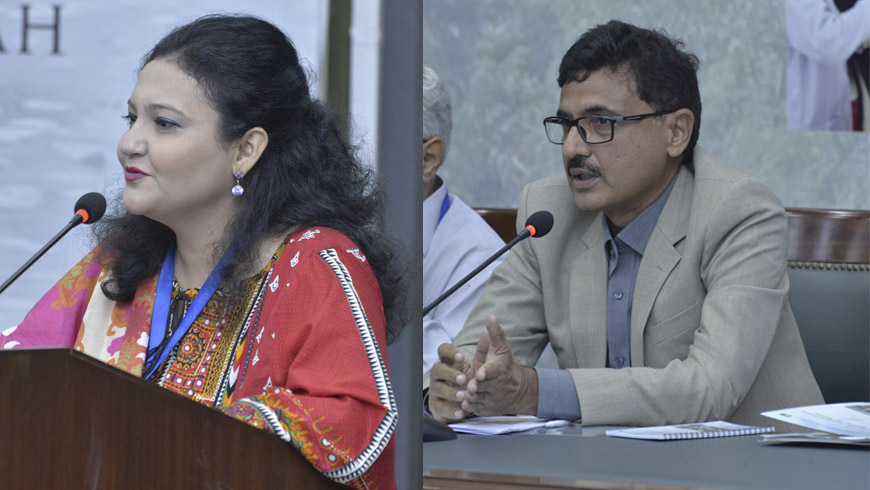
She concluded the research project presentation by providing reliable data about the water quality hazards, effects of ecosystems and also urged about active role of ownership from all the stake holders to protect this major fresh water reservoir of Pakistan that is threatened due to pollutants as well as mismanagement. “Water quality is in miserable condition so as the fish that may cause many diseases and increases greatest cancer risk,” she added.
Shafqat Hussain Wadho Chief Engineer Kotri Barrage at Irrigation Department, Dr. Abdul Jabbar Memon Deputy Director at Fisheries Department, Altaf Shaikh Manager Conservation Sindh at WWF Pakistan endorsed the research findings and appreciated the research study conducted by Water Study Center at Mehran University Jamshoro. They also emphasized on the departmental coordination in order to implementation of laws and policies.
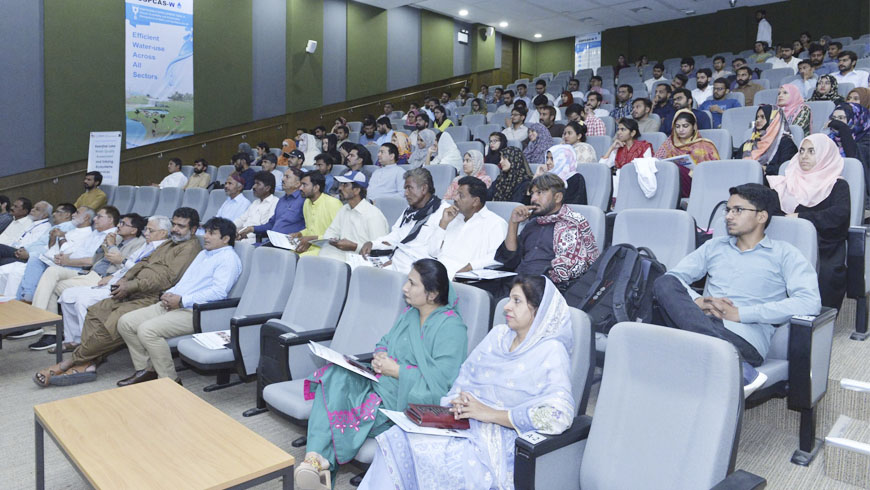
Before that she acknowledged USAID for providing financial support for conducting this research and also thanked USPCASW and IEEM, MUET, WWF, Fisheries Department, Irrigation Department, Tourism Department, Wildlife Department and the community of Keenjhar Lake. Uzma Imran as Principal Investigator also thanked the research team includes, Dr. Asmatullah Co-PI, Dr. Jenifer Weidhaas International Expert University of Utah USA, Muhammad Hammad, Rafi-Uz-Zaman, Muhammad Irfan, Raima Mehmood, Soomal Hamza, Veengas Panhwar, Ahsan Latif, Azizullah Gabol, Kaleemulah Shaikh, Suresh Kumar and Shoaib Qureshi.
The research seminar was attended by the representatives from the community, CBOs, NGOs, industry partners, faculty members, scholars and students of Mehran University. In the end of seminar, question answer session was moderated by Dr. Rasool Bux Mahar. Later, he presented souvenirs to the distinguished guests and community representatives whereas shields and certificates were presented to P.I, Co-PI of the research project and entire team.
Tag:community, Environment, Fisheries Department, IEEM, Industry, Irrigation Department, Keenjhar Lake, KL-Waves, Kotri industrial waste, MUET, Nooriabad industrial waste, organizations, Thatta district, Tourism Department, USPCASW, Uzma Imran, Valuing Ecosystems Services, Waste Water, Water Center, Water Quality Assessment, Wildlife Department, WWF

